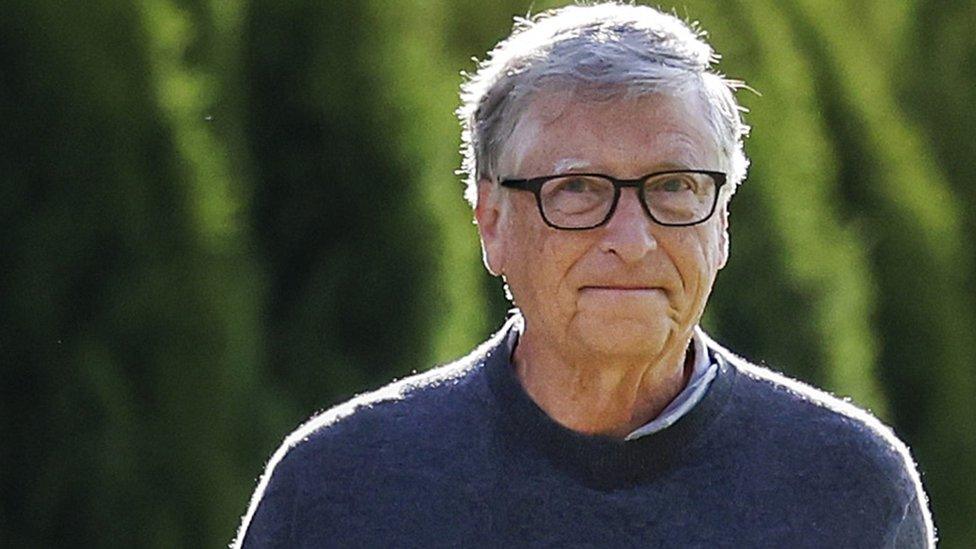Patagonia: Billionaire boss gives fashion firm away to fight climate change
- Published
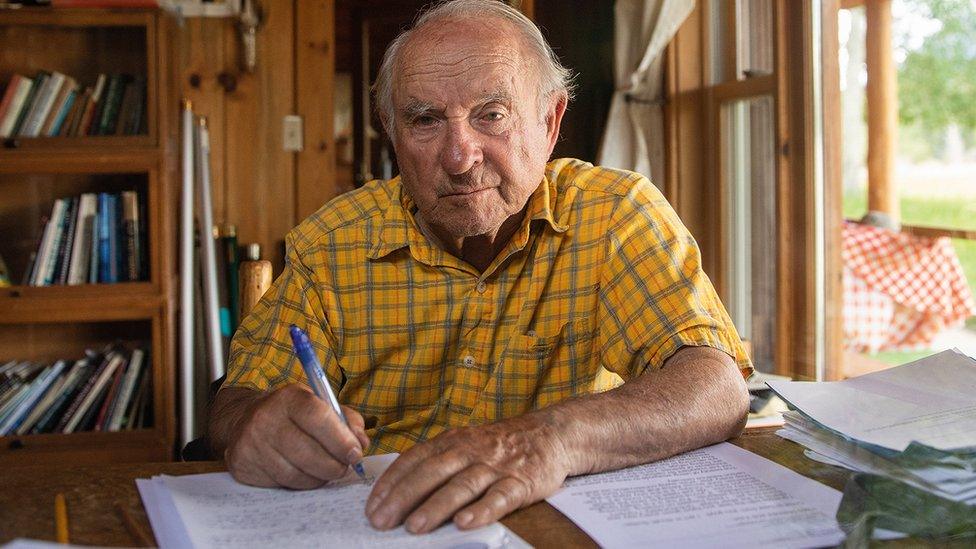
Yvon Chouinard founded Patagonia in 1973
The billionaire founder of the outdoor fashion brand Patagonia has given away his company to a charitable trust.
Yvon Chouinard said any profit not reinvested in running the business would go to fighting climate change.
The label has amassed a cult following due to sustainability moves like guaranteeing its clothes for life and offering reasonably priced repairs.
It is famous for an advert titled "Don't buy this jacket" asking shoppers to consider costs to the environment.
The brand's website now states: "Earth is now our only shareholder."
Mr Chouinard has always said he "never wanted to be a businessman".
A rock climbing fanatic, he started out as making metal climbing spikes for himself and his friends to wedge into rocks, before moving into clothing and eventually creating a hugely successful sportswear brand with a cult following.
Founded in 1973, Patagonia's sales were worth around $1.5bn this year, while Mr Chouinard's net worth is thought to be $1.2bn.
But he has always shied away from his wealthy status, telling the New York Times he was "horrified to be seen as a billionaire".
'Exceeded the limits'
He claimed that profits to be donated to climate causes will amount to around $100m (£87m) a year, depending on the health of the company.
"Despite its immensity, the Earth's resources are not infinite, and it's clear we've exceeded its limits," the entrepreneur said of his decision to give up ownership.
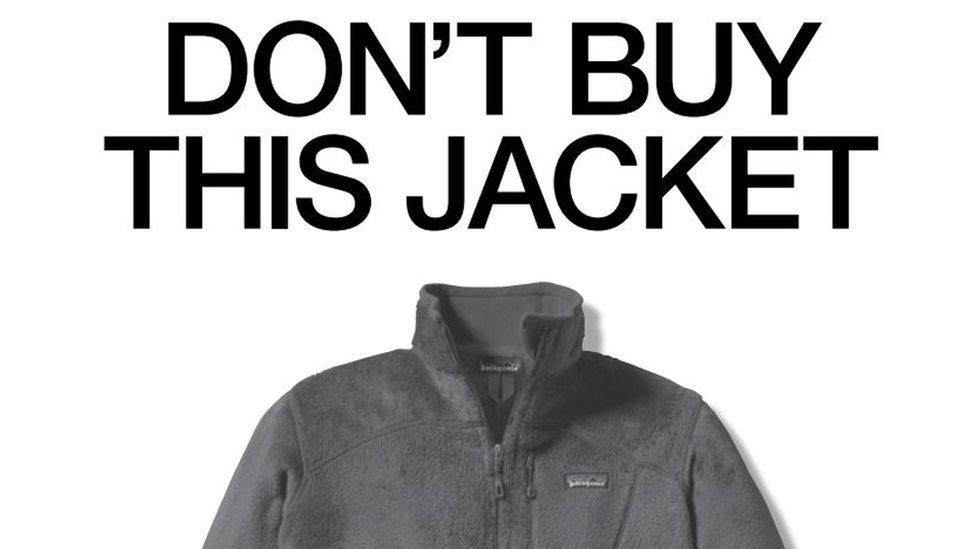
The firm's marketing campaigns - focused around asking people to buy only what they need - have not dampened sales and critics have argued by raising its prominence it has encouraged more spending rather than less.
Prices are relatively high with jumpers, for example, costing around £200 and T-shirts around £40, but the company argues that the cost reflects the fact its clothes are meant to last a lifetime.
Patagonia's chairman, Charles Conn, acknowledged the higher prices but said cheap fast fashion was "anathema" to the brand.
"We invest in making sure we use the least water, the least dangerous chemistries and dyes, and use the least carbon in the production of our products, which often means they cost a little bit more," he told the BBC.
Sandra Halliday, UK editor for FashionNetwork.com, a global fashion news website, told the BBC Mr Chouinard's move could ironically end up boosting its sales further.
However, she said the "maverick" founder had always been more committed to the environment than "simply making money".
"If this was simply a marketing ploy it would be an inspired one, but it's not, it's actually a genuine move to try to do something better for the planet."

People who have donated their wealth
Microsoft founder Bill Gates this year vowed to "drop off" the world's rich list as he made a $20bn donation to his philanthropic fund. The tech boss, who is thought to be worth $118bn, had pledged to give his wealth away to charity in 2010 but his net worth has more than doubled since then.
Last year the boss of the Hut Group, which owns a range of online beauty and nutrition brands, donated £100m to a charitable foundation after becoming a billionaire when his firm was listed. Matthew Moulding said of his newfound wealth that he "couldn't even comprehend the numbers" and was trying to make a difference.
In 2019, Julian Richer who founded hi-fi chain Richer Sounds handed over 60% of the business to staff

The Californian firm was already donating 1% of its annual sales to grassroots activists and committed to sustainable practices. But in an open letter to customers, external, the apparently reluctant businessman said he wanted to do more.
Mr Chouinard said he had initially considered selling Patagonia and donating the money to charity, or taking the company public. But he said both options would have meant giving up control of the business and putting its values at risk.
Instead, the Chouinard family has transferred all ownership to two new entities. The Patagonia Purpose Trust, led by the family, remains the company's controlling shareholder but will only own 2% of its total stock, Mr Chouinard said.
It will guide the philanthropy of the Holdfast Collective, a US charity "dedicated to fighting the environmental crisis" which now owns all of the non-voting stock - some 98% of the company.
"Each year the money we make after reinvesting in the business will be distributed as a dividend to help fight the crisis," Mr Chouinard said.
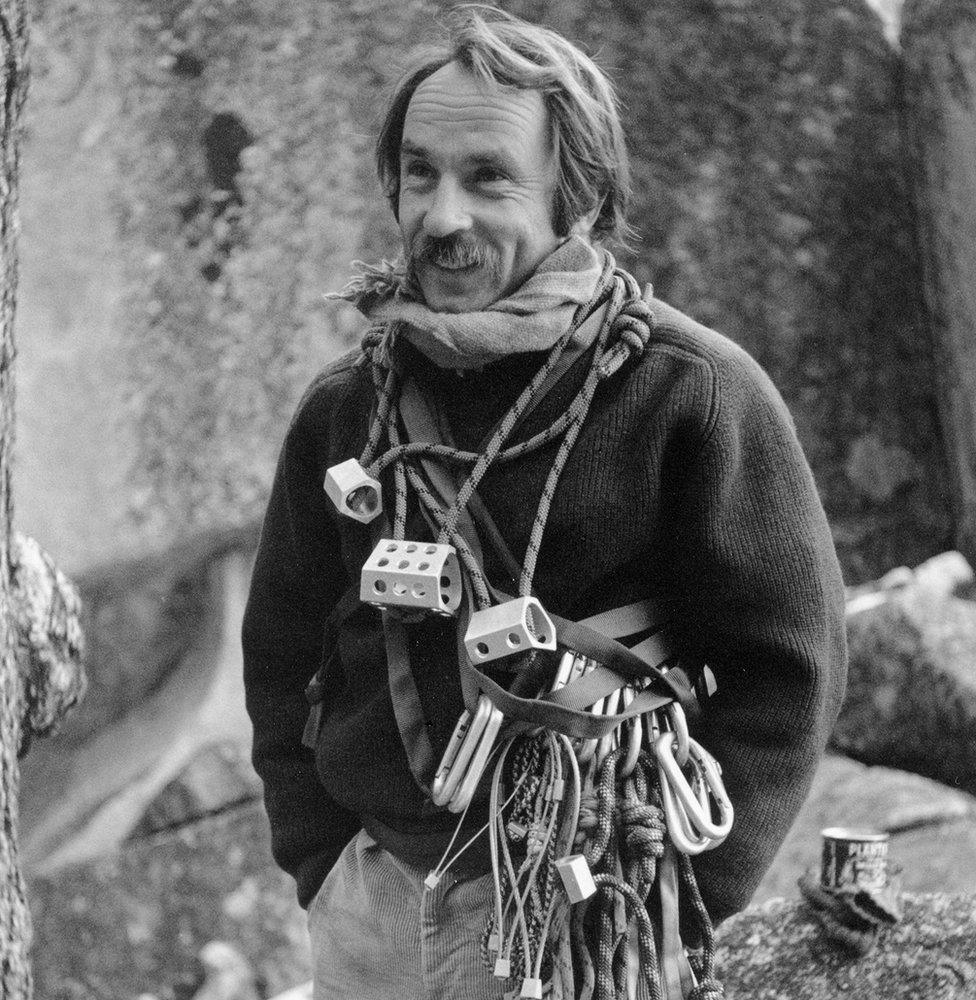
Yvon Chouinard started out making metal spikes for rock climbing


Patagonia combines high-end outdoor fashion with its own brand of environmental and social activism. It's a heady combination that certainly appeals to a loyal, if predominantly well-heeled following.
Part of the attraction comes from the fact that its environmentally conscious stance isn't new. It was preaching eco-awareness years before sustainable fashion became fashionable.
But it's still pretty hard to save the planet, if your business depends on selling stuff, however many recycled or renewable products you use.
By ringfencing future profits for environmental causes, Patagonia's founder Yvon Chouinard has done his best to square that circle.
But he is also clearly trying to ensure that Patagonia brand is future-proofed and can never fall into the hands of the kind of companies he has accused of greenwashing in the past.
And if that doesn't appeal to wealthy outdoorsy types with a social conscience, nothing will.

- Published17 December 2015
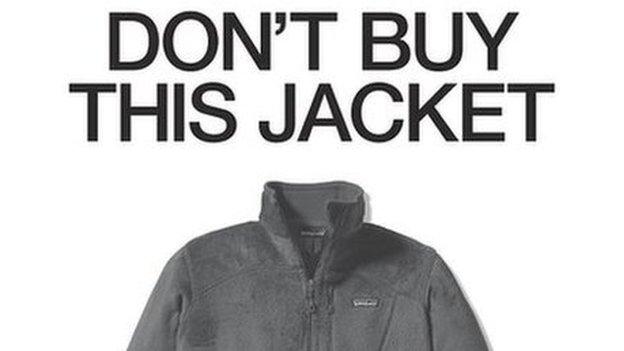
- Published14 May 2019
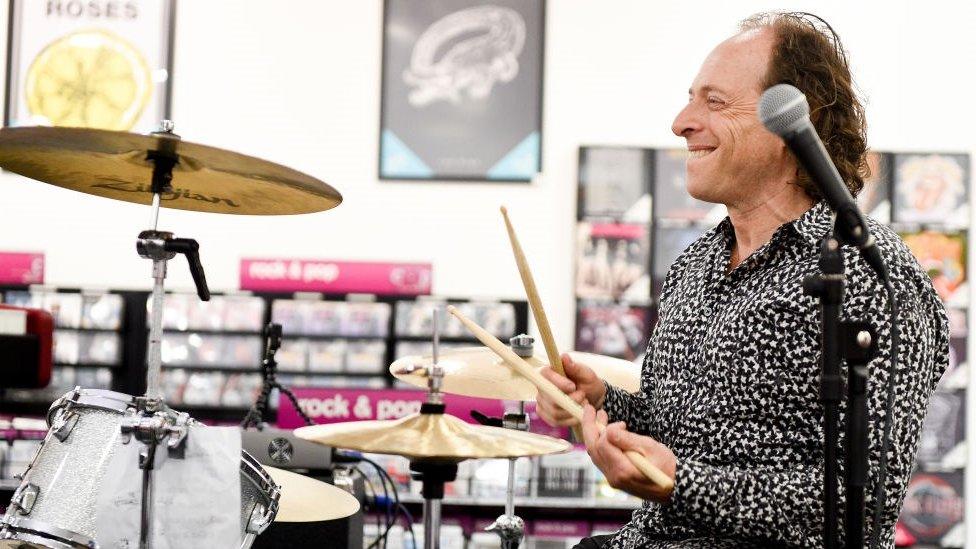
- Published14 July 2022
